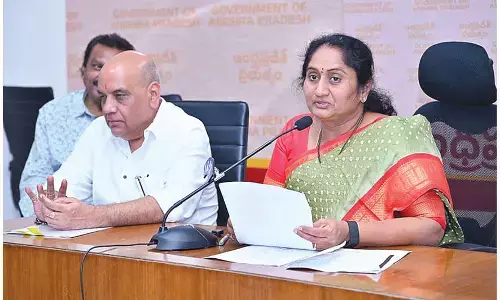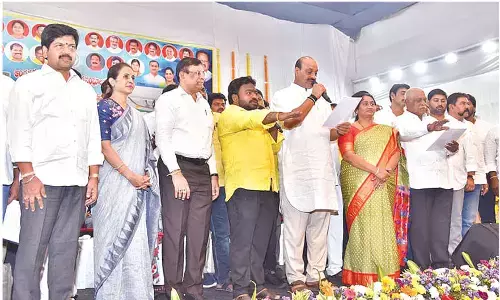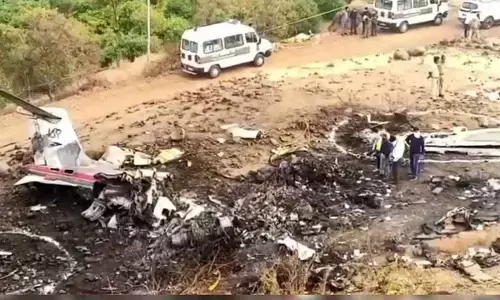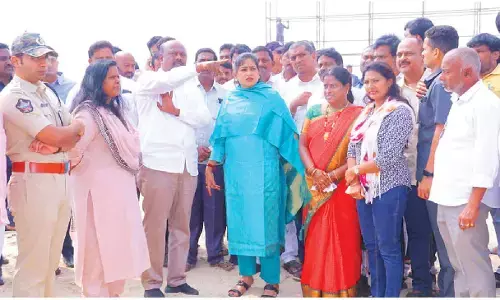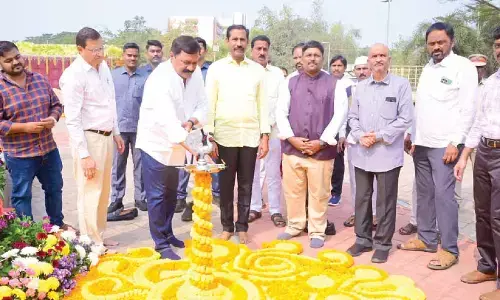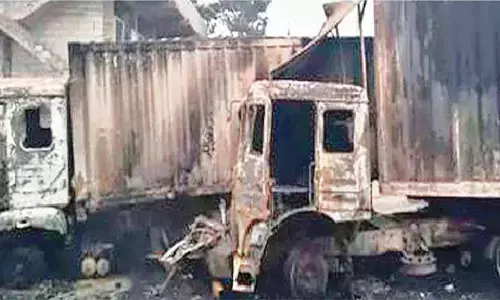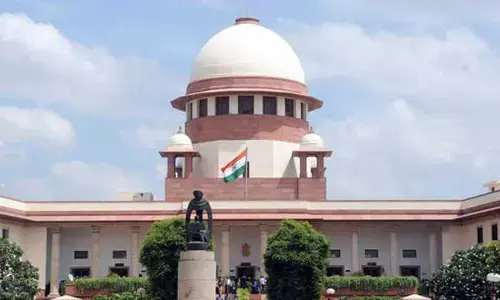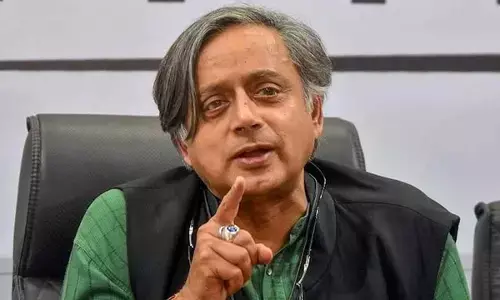Hyderabad sinks, wake up!
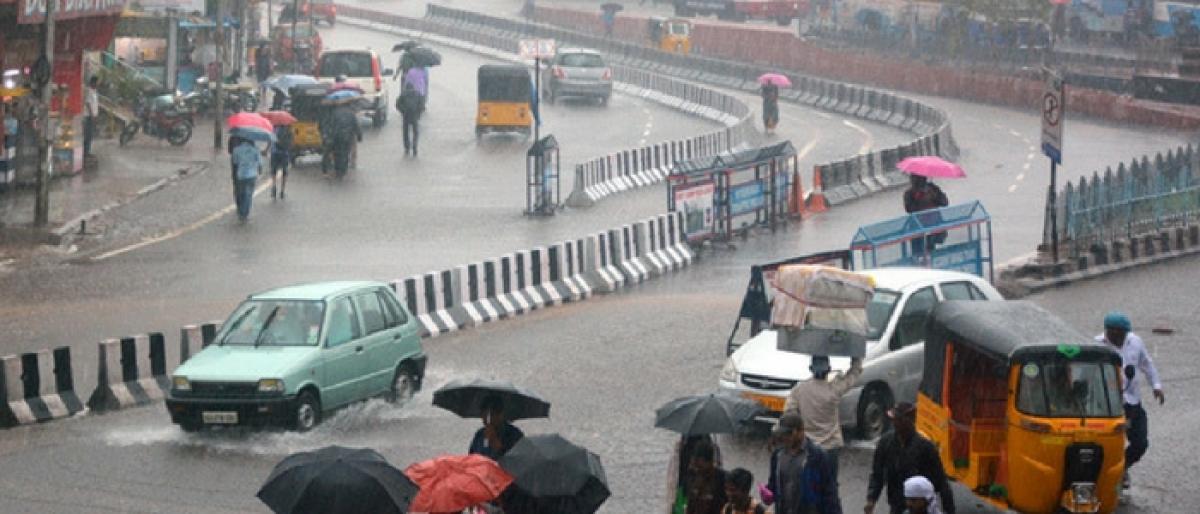
The experiences of people in Hyderabad in the last few days reveal lack of preparedness of our city administration to deal with the extreme weather events that likely to occur during the monsoon. Urban flooding is increasingly recognised as a disaster and should be managed accordingly.
The experiences of people in Hyderabad in the last few days reveal lack of preparedness of our city administration to deal with the extreme weather events that likely to occur during the monsoon. Urban flooding is increasingly recognised as a disaster and should be managed accordingly.
The National Disaster Management Authority (NDMA) has also issued guidelines to tackle the phenomenon of urban flooding.
The art of drainage is thrown to the winds as politician-builder-bureaucrat nexus rules the city. Illegal encroachments thrive due to political support and official nexus. The populist politics and the collapse of welfare State in providing reasonable housing at an affordable cost are all responsible for this pathetic state of affairs.
Potholes and manholes have to be immediately covered to avoid fateful casualties. Storm water drains need to be effectively put in place. The encroachments on nalas should be cleared without any laxity.
Cities are extremely vulnerable to climate change impacts as they generate no less than 40% of global GHG emissions. As the threat of urban flooding looms large over our cities, there is a vital need to increase investment in flood defences.
Climate change adaptation needs to be internalised in all developmental policies and programmes especially in building of cities infrastructure. NDMA states that urban flooding is significantly different from rural flooding as urbanisation leads to developed catchments, which increases flood peaks by 1.8 to 8 times and flood volumes by up to 6 times.
Consequently, flooding occurs very quickly due to faster flow times (in a matter of minutes). The urban flooding poses a much more serious economic challenge as urban areas are also centres of economic activities with vital infrastructure which needs to be protected.
The impact of urban flooding can also be widespread, including temporary relocation of people, damage to civic amenities and deterioration of water quality and risk of epidemics. Develop more accurate and reliable early warning system and effective communication of the same to all the stakeholders.
Risk assessment should be carried out with a multi-hazard concept leading to foolproof land use planning. The unplanned and haphazard growth of cities obstructs natural flow of flood water causing more damage.
Thus, flood management strategies should be dovetailed into urban development measures. Water bodies in urban sprawl are the most endangered species due to skyrocketing land prices. Some of these tanks have totally disappeared while in other cases, the contours have altered beyond recognition. The city of lakes has now turned into a city of encroachments.
When natural flow of water is obstructed, the urban flooding is rather inevitable. The strict restoration and conservation of water bodies is the solution to the problems of depleting groundwater levels, growing water scarcity and urban flooding.
The Center for Science and Environment (CSE) report estimates that Hyderabad lost 404 water bodies, which worked as sponges during floods, between 1982 and 2012. Despite Constitutional devolution, the city administration still has to depend on state governments to deal with the challenges they encounter.
City governance institutions have to be empowered. Metropolitan development services should be exclusively constituted with a clear focus on urban administration.









